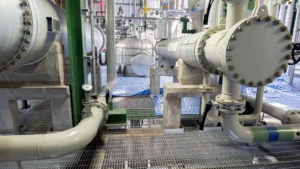
Heat Exchangers: ANDT inspection as pressure vessel
Heat exchangers, classified as pressure vessels, require advanced NDT inspection to ensure safety, mechanical integrity and thermal efficiency in industrial operations.
Please confirm you want to block this member.
You will no longer be able to:
Please note: This action will also remove this member from your connections and send a report to the site admin. Please allow a few minutes for this process to complete.